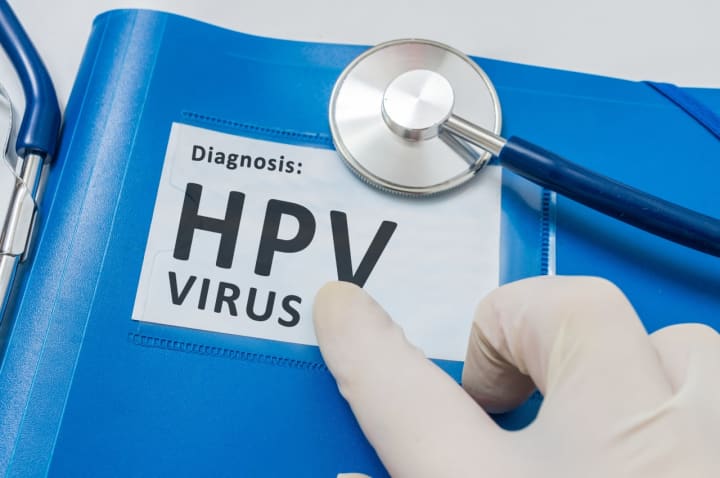Cervical cancers are caused by persistent infection with high risk human papillomavirus (HPV), a common infection that spreads through sexual activity. HPV can also cause vaginal, vulvar, anal, and penile cancers as well as cancers of the head, neck and throat. Additional risk factors for cervical cancer include smoking, a family history of cervical cancer, lowered immunity, being overweight, use of birth control pills for five or more years, three or more full term pregnancies, having several sexual partners and experiencing pregnancy before age 17. Although cervical cancer typically occurs in women over the age of 30, all women are at risk.
In its earliest stages, cervical cancer has no symptoms. In more advanced stages, symptoms include abnormal vaginal bleeding, abnormal vaginal discharge and pain during sex.
If cervical cancer is found in its earliest stages, there is a much greater chance that it can be cured. Screening with the Pap test and, for some women, the HPV test, can detect changing cells in the cervix before they turn into cancer. The American College of Obstetricians & Gynecologists recommends as a general rule that women aged 21 to 29 years should have a Pap test every three years (HPV testing is not recommended); women aged 30 to 65 years should have a Pap test every 3 years, or co-testing with a Pap test and an HPV test every five years; and women over age 65 who have had years of regular screenings with normal results do not need to be screened for cervical cancer. Because each woman’s individual risk for cervical cancer is unique, it is always a good idea to ask your doctor what screening schedule is best for you.
The HPV vaccine provides safe and effective protection against the high risk HPV strains that most commonly cause cancer. The Food and Drug Administration has approved three vaccines to prevent HPV infection: Gardasil®, Gardasil®9 and Cervarix. Given in a series of injections (shots), the HPV vaccine is recommended for pre-teen girls ages 11 or 12 or for females between the ages of 13 and 26 and males between the ages of 13 and 21 who have not received any or all of the shots when they were younger. However, it is important to note that women who have been vaccinated will still need regular screening for cervical cancer because the HPV vaccine does not prevent all of the types of HPV that can cause cervical cancer.
Other ways to reduce your risk for cervical cancer are by not smoking, using condoms during sex, delaying the onset of sexual activity and limiting the number of sexual partners.
Treatment for cervical cancer depends on the stage of the cancer when diagnosed and the patient’s medical condition. The most common forms of treatment are surgery, radiation and chemotherapy, used alone or in combination.
New ways to prevent and treat cervical cancer are currently being explored in clinical trials, including immunotherapy, targeted therapy that specifically targets gene changes or growth factors in cancer cells and other novel approaches.
Women living in the tri-state area can receive high-quality, comprehensive gynecologic cancer care in state-of-the-art, comfortable environments at one of NewYork-Presbyterian’s Cancer Centers in New York City or Westchester. Our board certified gynecologic oncologists collaborate with a multidisciplinary team of cancer specialists to provide each patient with an individualized plan of care. The team frequently collaborates with the gynecology/oncology faculty at the Herbert Irving Comprehensive Cancer Center at NYP/Columbia University Irving Medical Center, many of whom are world-class experts in the field, to discuss our most complicated cases. To find a gynecologist or cancer specialist at the location most convenient for you, please visit nyp.org/cancerlocations.
NewYork-Presbyterian is one of the largest and most comprehensive hospitals in the nation, ranked New York’s No. 1 hospital for the 16th consecutive year, and No. 6 in the United States, according to the U.S. News and World Report. Affiliated with two academic medical colleges – Columbia University College of Physicians and Surgeons and Weill Cornell Medicine, NewYork-Presbyterian brings together internationally recognized researchers and clinicians to develop and implement the latest approaches for prevention, diagnosis and treatment. The Herbert Irving Comprehensive Cancer Center at NYP/Columbia University Irving Medical Center is only one of three NCI designated comprehensive cancer centers in New York State. NewYork-Presbyterian provides comprehensive cancer care at all of our locations throughout the New York metro area including Westchester County. Learn more at nyp.org/cancer.



